The Bluetooth 4.2 Module and the Differences Between Different Modules
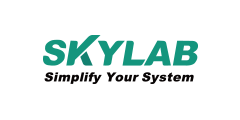



The introduction of the Bluetooth 4.2 module has revolutionized the entire world. While there are other versions of Bluetooth out there too, it is extremely important to know the differences between the different versions of Bluetooth. That’s because it will help you have a better understanding of the 4.2 module technology. In this guide, SKYLAB will tell you everything you need to know about the Bluetooth 4.2 module and the differences between different modules out there.
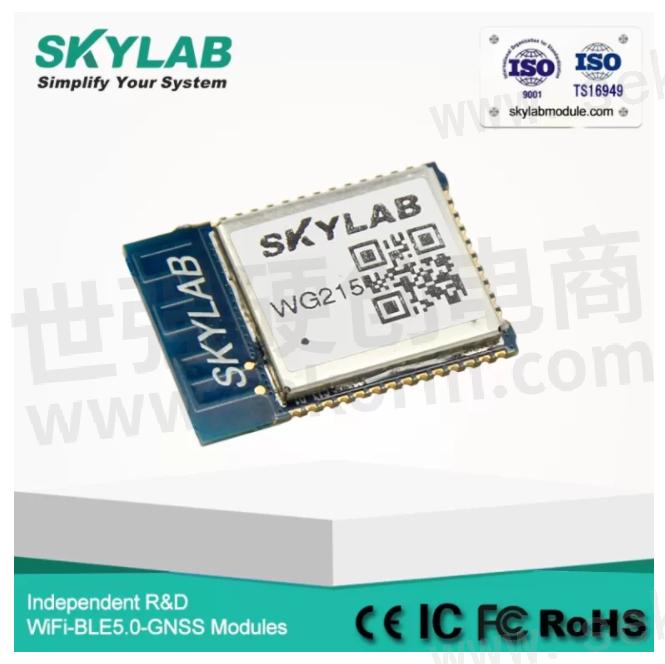
What Is Bluetooth 4.2 Module?
Bluetooth 4.2 is the latest addition to Bluetooth technology. According to research, this upgrade will drastically improve the speed by 2.6 times. This means that the downloads will be super speedy as compared to the previous versions of Bluetooth.
In addition to this, you will get privacy upgrades as well. This means that systems like Apple cannot track you on their own unless you turn on the tracking system yourself. This is what makes this version our favorite already.
How Does Bluetooth 4.2 Module Work?
Now that you know the basics of the Bluetooth 4.2 module, let’s take a look at how does the technology actually works. To accomplish the task of data transfer, it uses a technology called FHSS. For those of you who do not know what FHSS is, it means Frequency-Hopping Spread Spectrum.
Piconets also play an important role in the working of Bluetooth technology. They are a network that you form with one master device and slave devices of up to seven. However, all these devices need to be within a radius of 10 meters. You should also remember that piconets operate in frequencies ranging between 2.4 and 2.485GHz.
Let’s take an example of a smartphone and a speaker with the Bluetooth 4.2 module technology here. The phone will first send out an inquiry to the speaker’s access point. This inquiry is an attempt to form a connection between the two devices. The connection establishes when both the devices synchronize their frequency and time together. While some devices ask to input a security code as well, others do not. So, entering a security code is not always a necessity.
There are antenna-equipped chips in both the smartphone and the speaker. These chips are capable of transmitting and receiving signals at a specific frequency. The smartphone sends these signals to the speaker so that it can understand them later. Additionally, there is an inbuilt software program as well. It reprograms the characteristic signals of the phone to the signals that the speaker can understand.
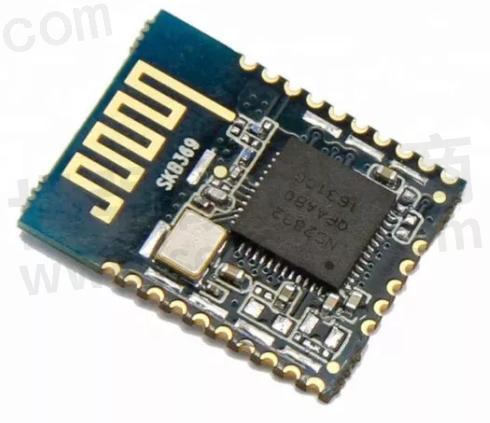
Advantages of Bluetooth 4.2 Module Technology
The Bluetooth 4.2 module technology offers many advantages to the users over other Bluetooth versions. That’s why it is the preferred version of the majority of the people out there. Let’s take a look at some of those advantages below.
1. Minimal Interface
With Bluetooth 4.2 technology, there is a minimal interface from other wireless devices such as 4G LTE out there. The reason behind it is the underlying technology known as frequency hopping and the use of low power signals. As a result, it offers excellent performance than other Bluetooth versions and is, therefore, the favorite version of the majority of the users.
2. Energy-Efficient
Since the 4.2 technology uses low power signals, it requires an extremely small amount of energy to function. As a result, the power consumption rate of this version is extremely low. This is a great advantage for smartphone users as it allows them to use the phone for longer hours and listen to music or talk to friends and family for an extended period.
3. Easy Sharing of Data and Voice Communications
The Bluetooth 4.2 module’s protocol is designed in such a way that it enables the devices that are compatible with each other in sharing voice and data efficiently with each other. As a result, you can safely drive around the town with a smartphone in your pocket and carrying out conversations on your headset.
4. You Get Your Own Personal Area of Network
With the Bluetooth 4.2 technology, you can form a network with up to seven different devices that are in the range of 30 feet. As a result, connecting with each other becomes easier than ever. Not only this but you can also set up multiple PANs in a single room of users.
5. Scalable
The protocol of Bluetooth 4.2 module technology is designed in such a way that you can update it with extreme ease. With the latest updates, you get new features that are not compatible with older forms of Bluetooth such as Bluetooth 3.0, 4.0, and 4.1. So, if you are also thinking of switching to the latest Bluetooth module, do not think twice and do it immediately!
6. Universal
The Bluetooth 4.2 version represents a universal technology and everyone recognizes it throughout the world. Since this technology is extremely popular, we can assure you that it will easily support your devices for years to come. So, what are you waiting for? Switch to Bluetooth 4.2 as soon as possible!
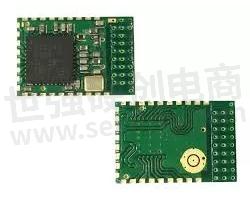
A Bit About Other Versions Of Bluetooth
Now that you know what are the distinguishing features of the Bluetooth 4.2 module, let’s take a look at some other versions of the Bluetooth as well. This will help you understand why people prefer Bluetooth 4.2 over other versions of Bluetooth.
1. Bluetooth 3.0
Also known as high-speed Bluetooth, Bluetooth 3.0 is a lot faster than its previous version which is Bluetooth 2.0. It allows a transfer rate of 20 megabits per second which is extremely fast. That’s why many wireless headphones operate with this technology as well. Not only this, but it offers enhanced power control as well.As a result, a smartphone can easily operate at the minimum power level that it requires to retain a quality connection with the wireless headphones. Not only this, but it will keep increasing the power of Bluetooth if you move the headphones further away from your smartphone.
2. Bluetooth 4.0
Bluetooth 4.0 is another noticeable upgrade in the world of Bluetooth. When the technology was released, it boasted a number of extra features such as improved range and connectivity. However, the most important feature of the Bluetooth 4.0 is the Low Energy Protocol. This feature is extremely important for those who are interested in having a fast internet speed.
3. Bluetooth 4.1
With the Bluetooth 4.1 technology, you can rock wireless Bluetooth headphones a lot longer than before. You can connect smart devices to the headphones without even draining your battery life. So, it will not be wrong to say that Bluetooth 4.1 has taken LE to the next level.This 4.1 technology is currently featured in headphones such as MEE x7 and many others. As a result, you can manage the power of both the device and the headphones better than before.While older versions of Bluetooth often interfered with other wireless technology such as 4G LTE, this is not the case with Bluetooth 4.1. This is why people prefer it over Bluetooth 3.0 and Bluetooth 4.0.
Bluetooth 4.2 Module Technolgy vs. Other Versions
Now that you know in detail about the Bluetooth 4.2 module technology and the previous versions of the Bluetooth as well, let’s take a look at the major differences between these versions.
1. Speed
The Bluetooth 4.2 clocks in at 1 megabyte per second. On the other hand, the other versions of Bluetooth are not this fast. This improved bandwidth makes Bluetooth 4.2 compatible with IoT devices. In addition to this, the wireless range of Bluetooth 4.2 maxes out at about 30 meters. This is what makes it a neat technology!
2. Range
With a speed of 1 Mbps, Bluetooth 4.2 does not only offer better speed than the other versions of Bluetooth, but it offers a better range to the users as well. This is what enables it to meet one of the IoT requirements too. So, if you are looking for a better range and a better speed, then we would suggest that you switch to Bluetooth 4.2 immediately.
3. Bluetooth 4.2 Relation to IoT Devices
In addition to the speed, Bluetooth 4.2 boasts an increased range that previous versions of Bluetooth are unable to offer. This means that all the IoT devices will work better with Bluetooth 4.2 and the features will run smoothly as well.
4. Backward Compatibility
Since Bluetooth supports backward compatibility, it means that you can keep using the old devices that support the Bluetooth version of lower than 4.2. In addition to this, when you will buy a new device that is compatible with Bluetooth 4.2, it will work better on your phone too. Thanks to the Bluetooth 4.2 technology!
5. Dual Audio
In the new world of version 4.2, you can connect to two devices that support Bluetooth at the same time. This is extremely handy in the situation where you need to play the same music in two different rooms. As a result, more people will now enjoy technology.
6. Power Requirement
The Bluetooth 4.2 is designed in such a way that it uses less power on your device than Bluetooth 3.0, 4.0, and 4.1. This means that you can now keep your device switched on for a longer period of time as you will get more time as compared to its previous counterpart.
7. Message Capacity
Bluetooth 4.2 has a message capacity of 31 bytes. While it is a lot less than the message capacity of Bluetooth 5.0 whose capacity is 255 bytes, it is still a lot more than Bluetooth 3.0, 4.0, and 4.1. As a result, you get 17 to 20 bytes for the actual data payload which is great as compared to the older versions.
Why Should You Switch to Bluetooth 4.2?
With a speed of 1 Mbps, Bluetooth 4.2 does not only offer better speed than the other versions of Bluetooth, but it offers a better range to the users as well. This is what enables it to meet one of the IoT requirements too. So, if you are looking for a better range and a better speed, then we would suggest that you switch to Bluetooth 4.2 immediately.
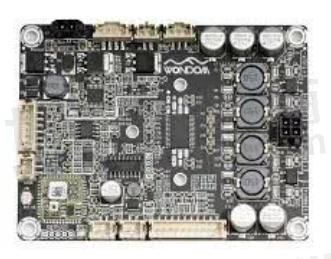
The above guide proves that the Bluetooth 4.2 module technology is a lot better than the previous versions such as Bluetooth 3.0, Bluetooth 4.0, and Bluetooth 4.1. That’s because this version is not only faster but offers a better range to the users as well. In addition to this, it supports almost all IoT devices too. That’s why there is a noticeable switch to Bluetooth 4.2 these days.369
- |
- +1 赞 0
- 收藏
- 评论 0
本文由天星转载自SKYLAB,原文标题为:Everything to Know About Bluetooth 4.2 Module Technology,本站所有转载文章系出于传递更多信息之目的,且明确注明来源,不希望被转载的媒体或个人可与我们联系,我们将立即进行删除处理。
相关推荐
【经验】天工测控解析wifi蓝牙二合一模块接口及其wifi蓝牙二合一模块选型
wifi蓝牙二合一模块是指集成了WiFi、蓝牙两种通信方式的模块产品,用户既可以通过WiFi部分来实现无线通信,数据传输,也可以通过蓝牙部分来实现数据透传及智能控制,终端产品通过嵌入wifi蓝牙二合一模块,能够轻松联网。本篇wifi蓝牙二合一模块厂家SKYLAB就来带大家认识一下wifi蓝牙二合一模块接口及wifi蓝牙二合一模块选型建议。
What is Bluetooth 4.2?
This article SKYLAB targets and explains bluetooth 4.2 that easily available on the Internet. If you want to install a Bluetooth module yourself, please refer to this article.
Introduction to Bluetooth Module 4.2
SKYLAB hopes that you have learnt some new concepts about Bluetooth module 4.2. If you are a beginner, this guide is going to help you a lot.
天工测控(Skylab)USB接口/SDIO接口/UART接口WiFi模块产品介绍
描述- 天工测控(Skylab)WiFi产品介绍。
型号- WG209,SKW92B,SKW92A,MT7628A,WG223,WG222,MT7612E,RTL8811CU-CG,WG221,MT7620A,RTL8723DS,MT7688A,WG225,SKW78,MT7697D,MT7601U,RTL8821CS,MT7620,MT7687,WG219,WG217,SKW93A,MT7610U,WU106,SKW75,SKW97,WG211,SKW77,SKW99,MT7621A,MT7603E,SKW71,WG215,ESP8266,SKW73,SKW95,SKW72,ESP32,MT7628N,QCA9531,RTL8189ES,MT7610E,QCA9331
天工测控WiFi+蓝牙组合模块选型表
天工测控提供如下WiFi+蓝牙组合模块选型,数据速率72Mbps~1201Mbps,SMD封装,多种蓝牙标准可选
|
产品型号
|
品类
|
芯片
|
模块尺寸(L*W*H)(mm)
|
天线
|
封装
|
模块标准IEEE 802.11
|
频率范围(GHZ)
|
数据速率(Mbps)
|
WiFi接口
|
蓝牙标准
|
蓝牙接口
|
|
WG215
|
WiFi+蓝牙组合模块
|
ESP32
|
25.5*18*3.0
|
PCB/IPEX
|
SMD
|
b/g/n
|
2.4
|
150
|
UART
|
V2.1+EDR,BLE4.2
|
UART
|
选型表 - 天工测控 立即选型
Requirements for Bluetooth Modules in Intelligent Security Systems and Applicable Modules for Tiangong Measurement and Control
The Bluetooth module in the intelligent security system needs to have characteristics such as low power consumption, high security, stable connectivity, suitable transmission distance and penetration, small size and easy integration, multi device connection capability, anti-interference ability, and fast response. The SKB369 Bluetooth 4.2 low-power module from Tiangong Measurement and Control is suitable for devices with strict cost and power requirements; The SKB501 Bluetooth 5.0 module is suitable for intelligent security scenarios that require high transmission distance and performance.
【选型】用于物联网智能家居领域的WiFi/蓝牙/WiFi+蓝牙组合模块推荐
本文讲解基于WiFi模块、蓝牙模块、WiFi+蓝牙组合模块串口通信的物联网智能家居升级体验。SKYLAB智能家居产品中内置UART WiFi+UART蓝牙二合一组合模块(WG215/WG222),用户手机下载相关APP,通过手机蓝牙与智能家居产品中的BLE蓝牙模块建立连接,也可以通过路由器连接WiFi与智能家居产品中的WiFi模块建立连接,获得智能家居产品的控制权限。
【技术】wifi模块有哪些?wifi模块的工作原理
专注无线模块的SKYLAB经常能收到来自智能家居、安防监控、工业物联网等应用场景的无线通信模块,WiFi模块的咨询,有需要无线路由方案的,4G转WiFi,有线转无线,无线视频传输,数据透传,智能控制,工业控制等等。
SKYLAB成功研发出一种基于WiFi+蓝牙二合一组合模块WG215的蓝牙探针软件,并获得了专利证书
2020-11-20,日前,SKYLAB研发团队又获得了一项“WG215蓝牙探针软件 V1.0”软件专利证书,自蓝牙探针、蓝牙网关立项以来,公司软、硬件研发团队都致力于WiFi、蓝牙无线通信技术,通过对基于WiFi+蓝牙二合一无线技术的数据采集、数据传输、智能控制等应用,成功研发出一种基于WiFi+蓝牙二合一组合模块WG215的蓝牙探针软件,并获得了国家版权局计算机软件著作权授权。
What Are The Advantages Of IoT Low-power Bluetooth Modules?
The original classic Bluetooth modules were mostly used for audio transmission. With the emergence of low-power Bluetooth modules, the application of Bluetooth has been extended to all kinds of fields. This article presents to you several advantages of IoT low-power Bluetooth module applications.
【产品】WiFi蓝牙二合一模块WG215,基于ESP32芯片
天工测控推出的WG215是一款WiFi+蓝牙二合一的模块,基于ESP32芯片!WG215 支持Wi-Fi基础协议,速度高达150 Mbps。
天工测控(Skylab)GNSS模块/WiFi模块/蓝牙模块/组合模块/UWB模块选型指南
目录- 公司简介和产品选型表 GNSS模块 WiFi模块 蓝牙模块 组合模块 UWB模块 方案相关
型号- SKM2101,WG209,SKG122C,SKM88,SKW92B,SKM89,SKW92A,SKM2102,SKG17DT,SKM2105FR,SKM86,SKM2505,SKM2105FR-25M5,SKM2105,SKM2105FR-25M8,SKG12D,SKG122S,SKG12F,SKW496C,SKM2308DR,SKG12A,SKG092C,SKG12B,SKG122Y,SKB389AA,SKW497,SKM80,SKM81,SKM82,SKG09BL,SKW3000,SKM2102CR-40M3T,SKG093Q,SKG122GR,SKG093N,SKB501,SKG1223,SKG121S,SKU621,SKG121T,SKM61C,SKG12BL,SKM2505NR,SKU620,SKG16BL,SKG12DT,WG822,SKG123NRD,SKM2305NDR-40M3T,SKU609,WG821,SKG12UR,5KW99,SKM2305NDR,SKU610,SKU611,SKM2102SR,SKG09DT,SKM2105QR,SKM2505NR-40MXT,SKM2102CR-40M5T,SKM2102CR,SKG123L,SKG122ER,SKG123N,SKG17D,LCS6260,SKG123Q,SKW101,SKW100,SKW103,SKG123NR,SKM2101MR-25M8,SKM2305NDR-40M5T,SKG121SA,WG243,SKM2308,SKG09,SKM2302,SKM2305,SKG123NT,SKM-6DM,SKW78,LCS2028,SKM2302DR,SKM2102ER,SKB380,SKB381,SKM2102CR-40MXT,SKG8212,SKM65C,WG233,SKW77,WG231,SKM2102CR-40M7T,WG238,WG237,WG236,WG235,WG241,WG240,SKM2102SR-40MXT,SKM2105QR-40FXT,SKM81F,SKM2101MR-25M5,SKG123ND,SKM65,SKM2305NDR-40MXT,WG229,SKM61,SKM2105DR,SKW17AE,SKB376,WG222,SKB379,SKB378,WG226,WG225,SKB369AA,SKM80D,SKG172T,SKM2105NR-40M5,SKM2101MR,SKM2105NR-40M7,SKZ301,SKM2105NR-40M3,SKM80F,SKG16,SKG17,SKM55,WG219,SKM2305NDR-40M8T,SKB360,WG217,SKW93A,SKGO9DT,SKG12,SKB362,SKM51,SKB361,SKM52,SKM53,SKG09D,SKG09F,SK7302,SKG09A,SKB369,WG215,SKG09L,SKM51G,SKM51F,SKM2302DR-40MX,SKM51C,SKM2105NR-40MX,SKB360I,SKM2105NR
天工测控(Skylab)无线模块选型表
目录- GNSS模块 GNSS+天线一体化模块 WiF模块 BLE蓝牙模块 WiFi+蓝牙组合模块
型号- SKM2101,WG209,SKG122C,SKM88,SKW92B,SKM89,SKW92A,SKM2102,SKG17DT,SKM2105FR,SKM86,TR6260,SKM2505,MT7612E,SKM2105,MT7688A,SKG12D,SKG122S,SKG12F,SKW496C,SKM2308DR,SKG12A,SKG092C,SKG122Y,SKW497,SKM80,SKM81,SKM82,SKG09BL,SKW3000,SKG093Q,SKG122GR,SKG093N,SKB501,SKG1223,SKG121S,SKG121T,RTL8812,SKM61C,RTL8811,ESP32-H2,MT7610E,SKG12BL,SKM2505NR,SKG16BL,SKG12DT,WG822,SKG123NRD,WG821,SKG12UR,SKM2305NDR,SKM2102SR,SKG09DT,SKM2105QR,MT7601,RTL8821CS,SKM2102CR,SKG122ER,SKG123L,SKG123N,SKG17D,LCS6260,SKG123Q,SKW101,SKW100,SKW103,SKG123NR,SKG121SA,MT7620A,WG243,SKM2308,SKG09,ESP32-S3,SKM2302,SKM2305,SKG123NT,QCA9887,MT7628,SKM-6DM,SKW78,LCS2028,BK7231,SKM2302DR,RTL8822CS,ESP32-C2,MT7981,ESP32-C5,SKM2102ER,SKB380,SKB381,WG239,BL2028,SKG8212,SKM65C,WG233,SKW77,MT7603E,WG231,WG238,ESP8266,WG237,WG236,WG235,ESP32,WG241,QCA9531,WG240,RTL8852,SKM81F,SKG123ND,SKM65,WG229,SKM2105DR,SKM61,SKW17AE,SKB376,WG222,SKB379,SKB378,ECR6600,WG226,WG225,SKB369AA,SKM80D,SKG172T,MT7697D,SKM2101MR,SKM80F,SKG16,SKG17,SKM55,WG219,SKB360,SKW93A,WG217,SKG12,SKB362,SKM51,SKB361,SKM52,SKM53,SKG09D,ESP8285,SKG09F,SKW99,MT7621A,SKG09A,SKB369,WG215,SKG09L,SKM51G,SKM51F,SKM51C,MT7628N,SKB360I,IPQ6000,SKM2105NR
【选型】天工测控解析视频传输USB接口WiFi模块怎么选
基于WiFi模块的视频传输应用越来越广泛,来SKYLAB咨询视频传输WiFi模块的也在逐步增加,本篇SKYLAB君就来带大家了解一下主设备USB接口WiFi模块、从设备USB接口WiFi模块的视频传输USB接口WiFi模块怎么选,希望能够给到正在做视频传输WiFi模块的工程师们一点参考。
电子商城
服务
Ignion可支持多协议、宽频段的物联网天线方案设计,协议:Wi-Fi、Bluetooth、UWB、Lora、Zigbee、2G、3G、4G、5G、CBRS、GNSS、GSM、LTE-M、NB-IoT等,频段范围:400MHz~10600MHz。
最小起订量: 2500 提交需求>
提供语音芯片、MP3芯片、录音芯片、音频蓝牙芯片等IC定制,语音时长:40秒~3小时(外挂flash),可以外挂TF卡或U盘扩容。
最小起订量: 1pcs 提交需求>







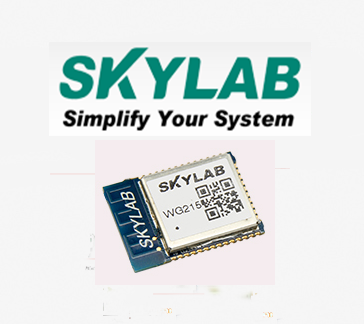
































































































































































































登录 | 立即注册
提交评论